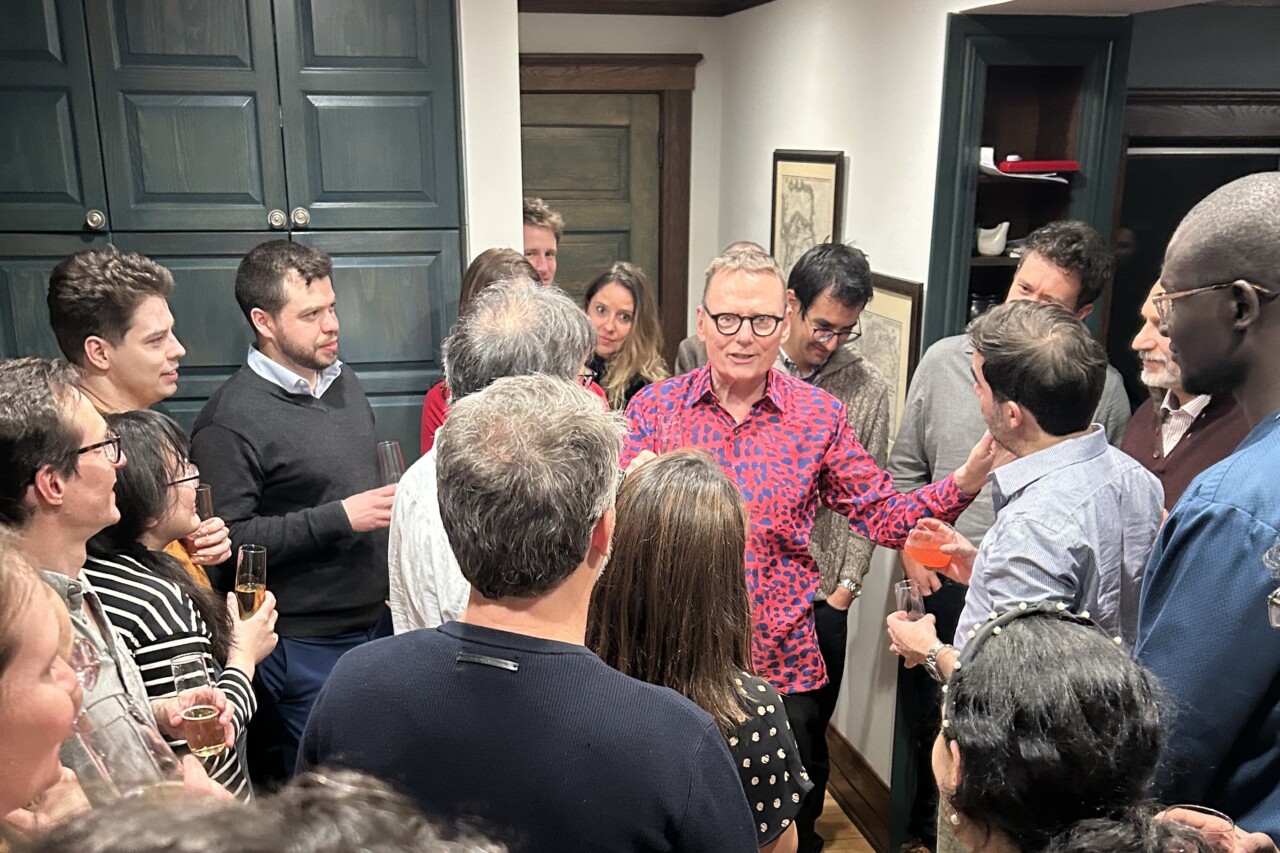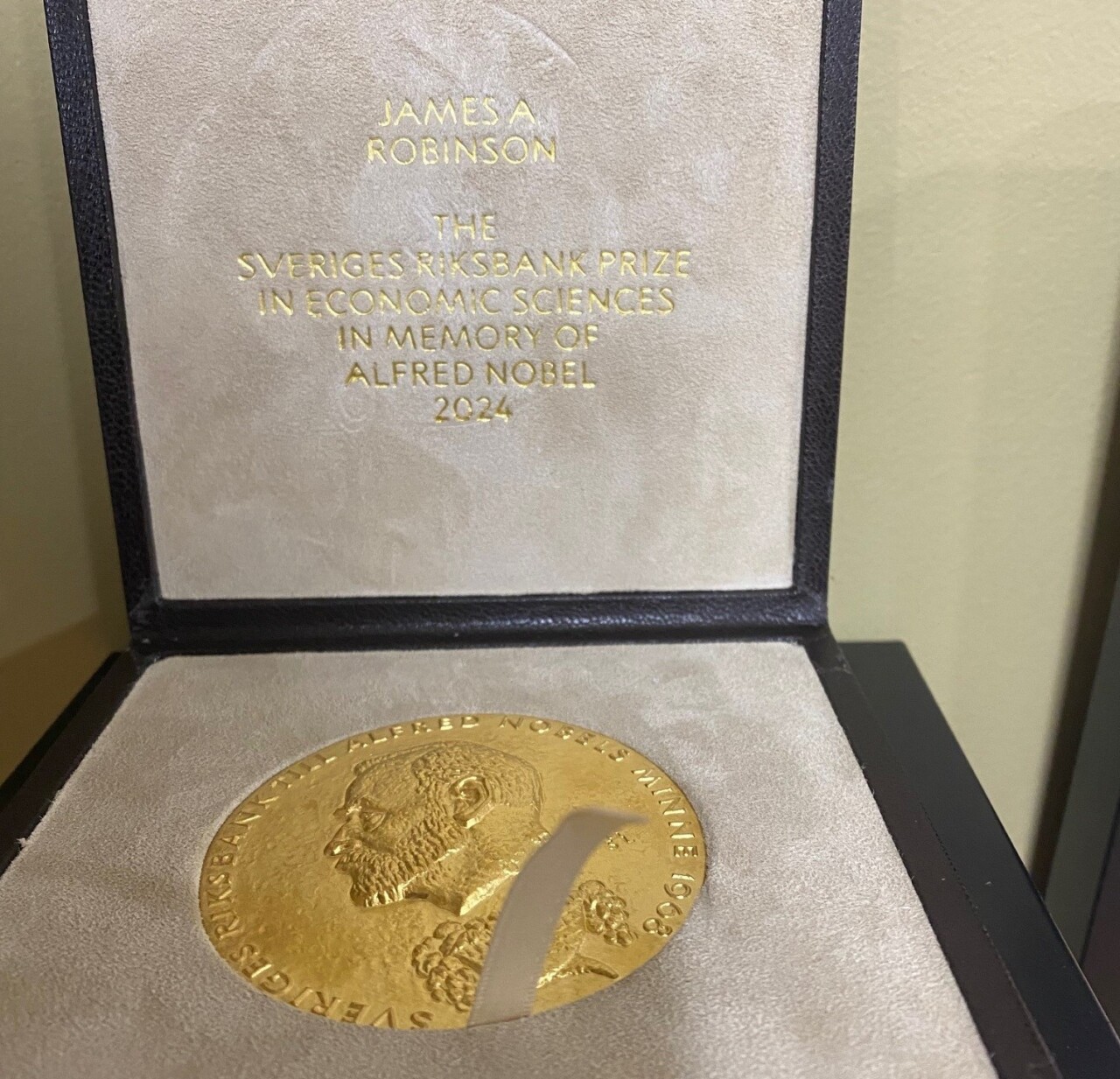Universitetsavisen
Nørregade 10
1165 København K
Tlf: 35 32 28 98 (mon-thurs)
E-mail: uni-avis@adm.ku.dk
—
People
Festivity — UCPH associate professor Jeanet Sinding Bentzen was part of an exclusive group invited to Nobel laureate James Robinson’s global gathering in Chicago.
When James Robinson, one of the world’s most influential economists and the most recent recipient of the Nobel Prize in Economics, turned 65 in February, he celebrated it with 75 selected guests from around the world.
One of those invited was Jeanet Sinding Bentzen, associate professor at the Department of Economics at the University of Copenhagen (UCPH).
She had co-authored a paper with the Nobel laureate, and with Jacob Hariri, a professor at the Department of Political Science, and it was this collaboration that earned them both an invitation to the special celebration in Chicago, where James Robinson lives and works.
»There were actually three of us from UCPH among the 75 invited guests. I think that’s pretty cool,« says Jeanet Sinding Bentzen when University Post speaks to her after her return to Denmark. The third guest was Pablo Selaya, who is also an associate professor at the Department of Economics.
The invitation had already landed in her inbox, but when James Robinson subsequently won the Nobel Prize, it made the celebration all the more extraordinary.
»He invited the 75 guests into his own home — a Victorian house filled with books, African masks, and the Nobel Prize itself, which was on display,« says Jeanet Sinding Bentzen.
»You find yourself walking among people you’ve only read in academic journals. And now here they are, holding a glass of wine,« she says with a laugh.
James Robinson is particularly renowned for his research on how institutions influence economic development. Together with colleagues, he demonstrated that countries with strong democratic institutions and solid property rights generate better economic outcomes. It is this research that was the basis for the Nobel Prize that was awarded to him and his co-authors.
»They weren’t the first to claim that institutions matter. But they were the first to prove it with data. They used economic history and natural experiments to identify causal relationships,« says Jeanet Sinding Bentzen, who herself has been deeply inspired by James Robinson’s approach.
»It was that research that put data-driven economic history on the map. It has had a huge impact on my own work,« she says.
This was an extraordinary opportunity to connect with both the academic and the human side of the Nobel Prize
Before the dinner, James Robinson hosted a day-long conference featuring presentations from several of the guests — and it quickly became clear how much he has meant to his colleagues.
»Before launching into their talks, each person shared an anecdote about how James had influenced their career. It was quite moving,« says Jeanet Sinding Bentzen.
One former PhD student, for instance, had received a crucial nudge from James Robinson to pursue an idea that later became the foundation of her own academic career.
For Jeanet Sinding Bentzen, it was an exceptional experience to mingle with some of the world’s most prominent economists.
»You do feel a bit small,« she admits.
Even though the setting was exclusive, James Robinson’s personality was evident throughout the entire event.
»It’s probably a bit of an American thing — inviting your whole network into your home. But it’s also just typical of him. He’s a genuinely open and kind person who cares about bringing people together — even right after winning the Nobel Prize,« says Jeanet Sinding Bentzen.
The conference and dinner took place in the southern part of Chicago, where the University of Chicago is located. An area that, according to Jeanet Sinding Bentzen, is marked by stark social contrasts.
»The university is wealthy and grand, but just outside campus there’s poverty and social hardship. There are even safety alarms on the street corners. It really puts things into perspective,« she says.
Back home in Copenhagen, the experience has already left its mark.
»My son asked me if he might win a Nobel Prize one day too,« says Jeanet Sinding Bentzen with a smile.
For her, the experience serves as a reminder of the importance of both strong institutions — and good people.
»James Robinson is a giant in my field, and this was an extraordinary opportunity to connect with both the academic and the human side of the Nobel Prize,« she says.

